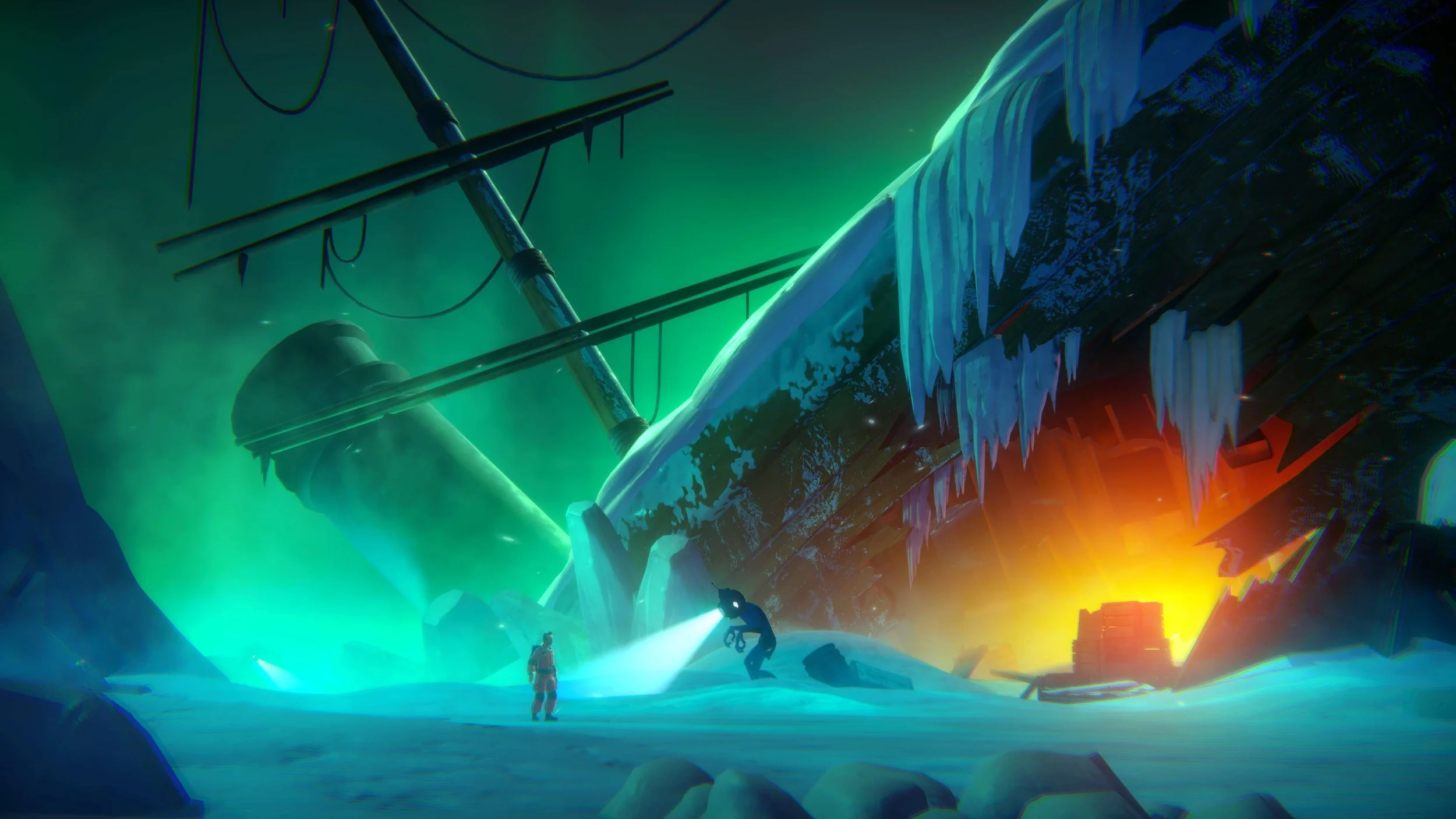Review | Little Orpheus - An Adventure Too Big For A Small Screen
Simple peasant-cosmonaut Ivan Ivanovich is sent deep into the core of the earth to see how habitable, or real, the Hollow Earth is. He quickly comes to discover a lush colourful jungle with excessively huge wildlife including stunning “flies the size of cars”. Quickly, however, a skyscraper-sized T-rex decides to eat him and that is much less awe-inspiring and more terrifying. You time sneaking behind rocks, perform button presses to avoid a prompt devouring, and most enjoyably, sneak past the T-Rex while stuck in a giant pterodactyl egg; gentle violin plucks sync to each little step you take. After this pressing sequence, Ivan freeze frames while hovering above a cretaceous maw. A 1940s adventure serial voice tells you to tune into the next exciting episode of…Little Orpheus!
He just wants his iPhone back.
Made for mobile devices and published on Apple Arcade, Little Orpheus is at its core a basic platformer broken into episodic levels with unique locales. This structure is wrapped around the narrative of Ivan recounting his adventures while being interrogated by General Kurkovoi to find the Little Orpheus. The titular device is the atomic core/bomb that Ivan used to drill through to the hollow earth that he’s now lost. Ivan needs to explain where it’s at, or as the general frequently mentions, he’ll get a firing squad if he doesn’t get to the point. It’s a lighthearted narrative with a lot of tongue-in-cheek references to Russian exploits into the unknown over the years.
The absolute strongest aspect of Little Orpheus by far is the soundtrack and sound design. The roughly 20-piece orchestra does a fantastic job of selling its self-described mix of the traditional (Russian) Shostakovich with a whimsical Disney score. The effort that was put in for a mobile game feels like overkill, but on consoles, you can really appreciate a unique and great score.
Boats probably shouldn’t be underground… inside a Hollow Earth…
The environments and vignettes have a nice satisfying contrast and vivid colours of environments. Each episode serves as a different environment, most of which are quite distinct. A particular highlight is a beautiful transition of time as Ivan travels a desert and it’s just beautiful colourful cinematography. These are also intentionally contrasted by the frequent conversations between Ivan and the general contrast with grainy and tepid looking black and white.
The real weakness of the game sadly is its gameplay. Ivan’s running and jumping is particularly floaty. Despite being a cosmonaut, most of the time you’re not in low gravity meaning this floatiness just comes off as unwieldy. It’s relatively weak, but not difficult, and it’s still reminiscent of the late 00s indie platformers. Skill-based platforming isn’t the focus here, instead Little Orpheus is more interested in creating an enjoyable and somewhat immersive experience.
Rule 1 of Adventuring: Bring plenty of food.
Rule 2 of Adventuring: Make sure you are not the food.
The fun of the story itself does boil down generally to frequent ‘funny banter’ between Ivan explaining the current environment to The General. It does have a lot of charm, and eventually starts to go somewhere in the later levels, but you will encounter a lot of repetition before you get there. It is amusing but there are only so many times the Major can ask, “Where’s my bomb?!” and threaten to shoot him, only for Ivan to go on a tangent about some banal things, or doubles down on explaining his journies excruciating detail.
A tenth episode is really the main addition compared to the Apple Arcade version. Without spoiling too much of the game’s original ending, this acts as something of a more conclusive ending. It removes some ambiguity from an already strong ending. It’s also one of the best and most interesting in terms of gameplay mechanics also. It left a good impression on an already strong ending.
While it has barebones platforming and relatively weak gameplay, Little Orpheus has an incredibly good soundtrack, with sharp visuals, and succeeds in creating a relaxing and satisfying whimsical experience.









